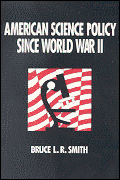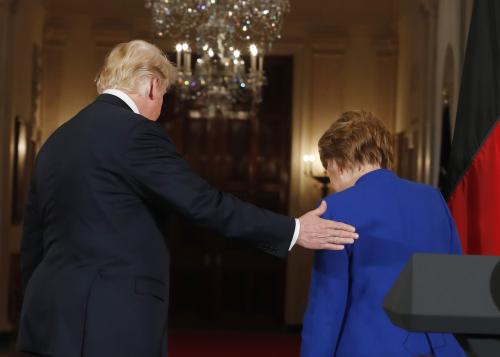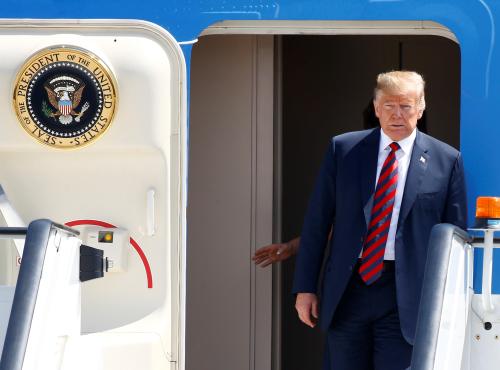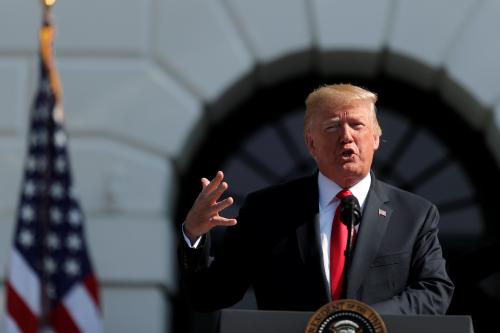For a while now, the world has been wondering whether there is something more to Trumpism than baleful tweets and uncurbed impulses: a set of ideas, and not just a collection of attitudes.
That question was at last answered last week with an op-ed by none other than the president’s National Security Adviser General H.R. McMaster and Gary D. Cohn, the president of the National Economic Council, purporting to explain the strategic rationale of the inaugural presidential trip to Saudi Arabia, Israel, and Europe.
It is perhaps only natural that the authors would seek to counter criticisms of the president’s 10-day trip to the Middle East and Europe as a chaotic and bumbling farce. It is tempting to read their refutation as nothing more than an attempt at ex post facto rationalization. This would allow us to continue to believe that these two men truly are the adult minders in charge of making sure that this administration reverts to the norm, and that the efforts of its most ideological members are contained.
Yet their text of less than a thousand words in length is much more than that. It is a carefully reasoned (if not entirely coherent) piece of writing, notable for the terseness with which it sets out its core ideas. Pending the publication of the president’s National Security Strategy some time this fall, it stands for now as the first and most authoritative articulation of this administration’s worldview, by two of its most powerful, experienced, and respected members. The Trump Doctrine it sets out is terrifying.
According to McMaster and Cohn, the presidential trip was nothing less than “historic” and represents a “strategic shift”: “America First signals the restoration of American leadership … to enhance American security, promote American prosperity, and extend American influence around the world.”
In sum: America First means America First, and not just in America, but everywhere on the globe.
Lest there be any residual doubt about the zero-sum worldview that informs this approach, the writers explain: “the world is not a ‘global community’ but an arena where nations … engage and compete. …Rather than deny this elemental nature of international affairs, we embrace it.”
No American president since 1945, whether Republican or Democrat, has broken so decisively with the American stewardship of the postwar liberal global order. In the service of the higher good of world peace, even the victorious superpower was willing to be bound to universal rules—a concession that admitted the existence of a worldwide community of humanity based on shared values rather than the principle of “might makes right.” Granted, Republicans have always emphasized that competition is healthy. But not quite in these tones, which are rather more reminiscent of Ayn Rand than of, say, Henry Kissinger.
Last Thursday’s presidential announcement that the United States will leave the Paris Agreement on climate change—unless the other 194 signatory countries are willing to “renegotiate”—proves that the administration means exactly what it says. There is a bite to the bark.
This inflection point provides several lessons. The first is for Washington: the competition in this administration between the amateur ideologues and the professional adults is decided, at least for now; round 1 goes to the ideologues. Rather than retreating, the White House is doubling down on its nationalism.
And McMaster and Cohn have thrown in their lot and their reputations with the president—to the extent of asserting a patent untruth when they write that Donald Trump reconfirmed America’s commitment to the mutual defense clause in Article 5 of the NATO treaty. One might more charitably argue that they are actually documenting their disagreement with their commander-in-chief while at the same time moderating and containing him. But if this is Trumpism lite, it is still far removed from traditional Republican internationalism. In other words, it is still Trumpism.
Nor is it encouraging to know that they are undertaking this effort after—as Politico’s Susan Glasser revealed today—the president or one of his more ideologically minded advisers excised an explicit affirmation of Article 5 in Brussels speech at the last moment. If this is containment, its effects seem to be limited at best.
The second lesson is for America’s European allies. McMaster and Cohn briskly dispatch the bedrock of the Western alliance: a belief in a moral kinship based on shared values. The word “values” appears twice, but never in connection with America’s European allies: first in a paragraph that discusses the Middle Eastern part of the president’s trip, and then in a passage telling America’s adversaries that the United States will “defend our interests and values, but also look for areas of common interest.” And in one oddly flat and uncomfortable locution, the authors speak of “principles that make America uncommon.” They do emphatically state that America needs alliances, but they make it clear America’s alliances are strictly conditional, temporal, and transactional: “Where our interests align (italics are mine), we are open to working together to solve problems and explore opportunities.”
To European ears at least, that is a remarkably shabby description of a relationship that spans nearly seven decades, and today is broad and deep, ranging from social and business ties all the way to the realm of defense and security. It is entirely inadequate in explaining the sacrifice of the nearly 900 Europeans who died fighting alongside American servicemen and -women in Afghanistan after Europe invoked Article 5 on behalf of America for the first and only time in NATO’s history on September 12, 2001.
But best not to disagree. For “… those that choose to challenge our interests will encounter the firmest resolve.” This bleakly businesslike threat leaves no space for compromise or any other form of give-and-take. And it cannot even imagine a collective commitment to a purpose that is larger than the sum of our interests—much less a sense of shared destiny.
Europeans have taken note. After the president’s trip, Germany’s Chancellor Angela Merkel told a beer tent full of voters that America’s (and Britain’s) unreliability means the continent must take its fate into its own hands. This week, on June 7, an EU summit will decide on a series of strong measures to improve Europe’s ability to defend itself—a development motivated by the continued threat posed by a resurgent Russia.
None of this means that Europeans are turning their backs on America, the trans-Atlantic relationship, or NATO, its military arm—or are attempting to set up a counterweight. But it is a declaration of emancipation. That is probably not what McMaster and Cohn intended.
The Brookings Institution is committed to quality, independence, and impact.
We are supported by a diverse array of funders. In line with our values and policies, each Brookings publication represents the sole views of its author(s).










Commentary
At last: The Trump Doctrine, revealed
And it’s terrifying for Europeans
June 5, 2017